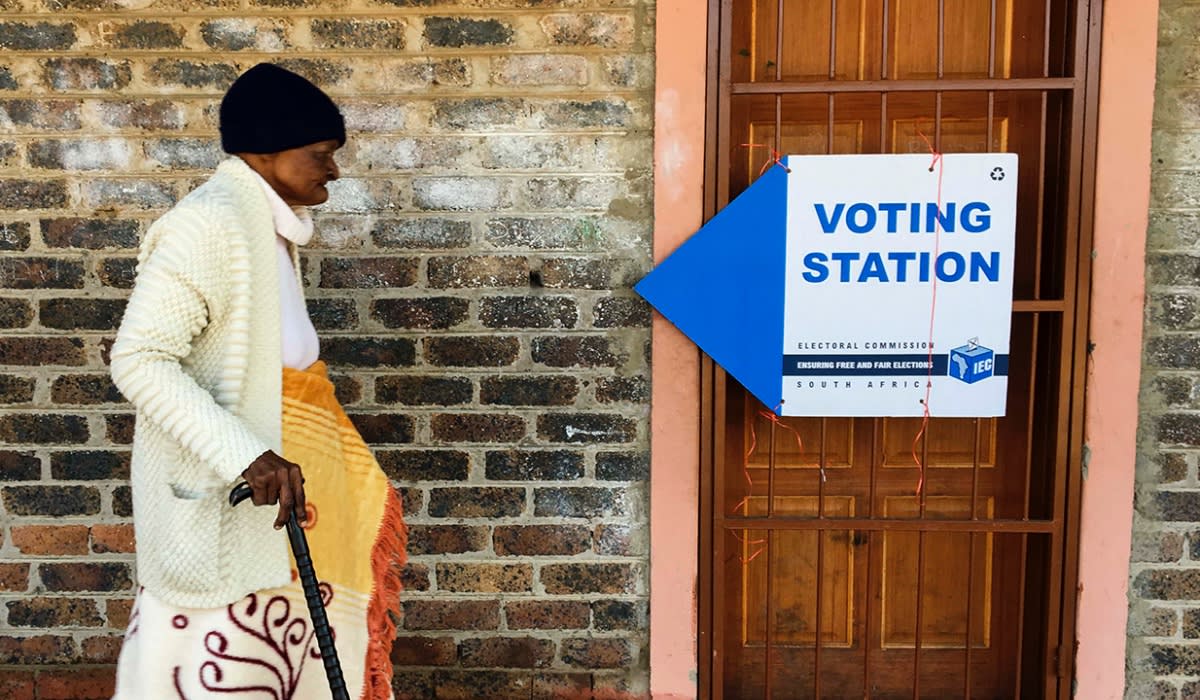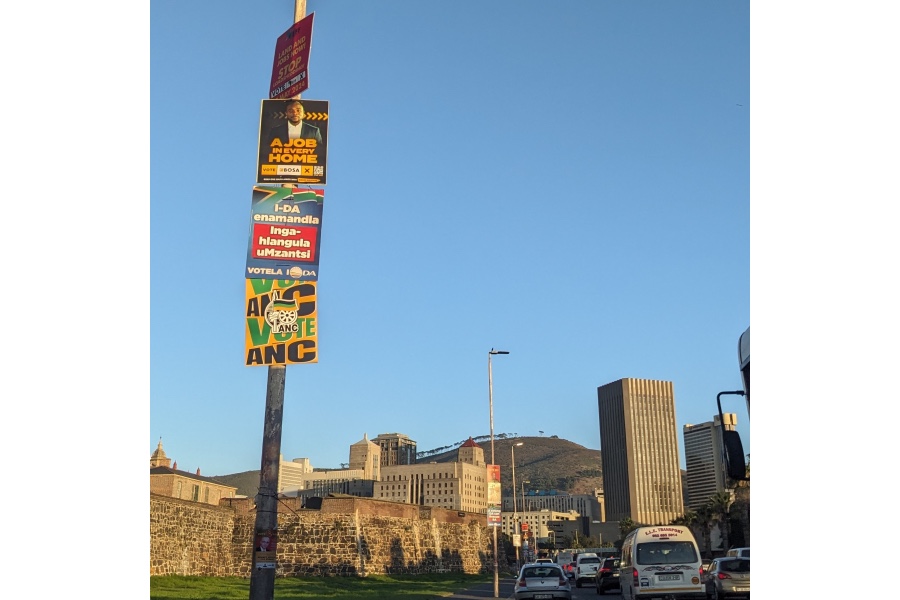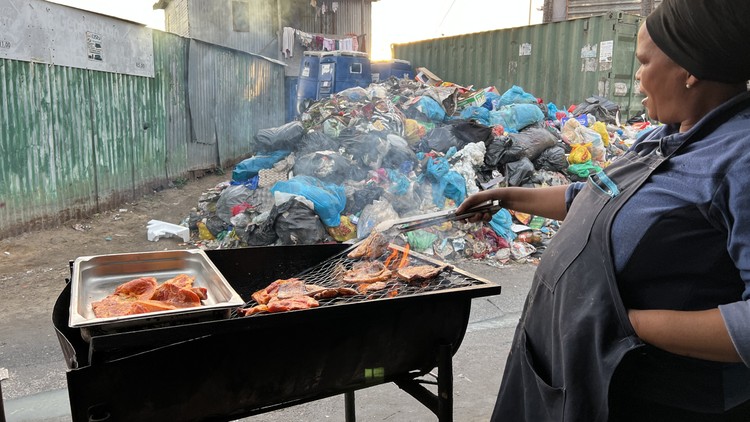30 years of democracy: A reflection on transition without transformation ahead of South Africa's election
This election could redefine South Africa's democratic landscape amidst persistent challenges in achieving true equality
by Nicole Paganini, Sanelisiwe Siyotula-Tschappe, Thembeka Sikobi | 2024-05-24

Three decades after the momentous elections on April 26, 1994, when South Africa transitioned from the apartheid regime under the National Party to a democratic republic led by the African National Congress (ANC), the nation once again prepares for an anticipated historic day at the ballots on May 29, 2024. Unlike that landmark election, which captivated global attention with its inaugural free voting over three days and marked the democratic end of apartheid, this upcoming election is set to be a pivotal moment in the country's political landscape for different reasons.
Surveys suggest the possibility of the ANC losing its outright majority for the first time since 1994, indicating that the optimism that followed the end of apartheid has evolved into a complex reality for many South Africans. There has been a steady decline in voter turnout since the 1994 national election, a trend that may continue in the 2024 National and Provincial elections. While the 1994 election saw a voter turnout of 86.87%, the last National and Provincial Election in 2021 saw only 45.86% registered voters turn up at the ballot box. This decline in voter turnout is a cause for concern as it could lead to a lack of representation and a weakening of democratic institutions. It does, however, underscore a growing disillusionment with the efficacy of democracy in the nation's challenges.
Women have been among the most disillusioned by the quality of democracy, as their issues and concerns, such as the persisting violence and increasing hunger in the country, have not been adequately addressed. Despite frequent marginalization, women have been crucial architects of South Africa's democratic transition and dreams for the Rainbow Nation. From the colonial era to apartheid, women played pivotal roles in protests, aiding activists, and rallying communities under leaders like Charlotte Maxeke, Nomvo Booi, Regina Gelana Twala, Victoria Mxenge, Ruth Mompati, Helen Joseph, Bertha Mashaba, Dora Tamana, Lilian Ngoyi, and Winnie Madikizela Mandela. Their often-overlooked contributions testify to women's power in shaping history and sustaining resilience in the liberation struggle, from coordinating boycotts to spearheading marches and acts of civil disobedience against an aggressive, racially discriminatory state. Women's organizations, including the ANC Women's League, Black Sash, and the United Democratic Front (UDF), have championed women's perspectives and narratives, contributing to achievements in legal and policy frameworks for gender equality, particularly in South Africa’s celebrated constitution. It is, therefore, a good sign, that despite many not registering to vote, it is a majority of women, who had registered. Women currently make up the majority of South Africa's voters' roll. Of the 27.7 million voters expected to vote on May 29, 15 million are female. With 55% of registered voters being women.
It is dissatisfying, then, that amidst pressing social and economic crises such as high unemployment rates, energy shortages, widespread corruption, and alarming levels of violent crime, three decades into democracy, women remain disproportionately affected. The hopes of the rainbow nation project entwined with the demise of apartheid have since morphed into a complex reality for women. While some of South Africa's populace now relishes freedom, the spectres of oppression, racism, classism, and the country's status as one of the most dangerous places in the world for women underscore that the transformative journey is far from complete if it ever truly commenced.
What to expect from the elections
TMG's Urban Food Futures programme collaborates with partners from academia and civil society in South Africa. To gain insights into the current socio-political climate, we spoke with a range of colleagues we collaborate with to better understand how the upcoming elections are linked to our work.

Cape Town is preparing for elections as parties run their last rounds of campaigns. © Nicole Paganini
Violence: A Persistent Plague
The level of daily violence in South Africa is staggering. Gang-related crime, substance abuse, and drug trafficking are rampant in the townships, areas historically marginalized under apartheid. Femicide and all forms of gender-based violence (GBV) remain distressingly prevalent. Our research highlights a link between hunger and violence. GBV, including sexual violence and intimate partner violence, is a pervasive issue in South African cities. High poverty levels, persistent unemployment, substance abuse, and entrenched masculinity in a patriarchal society all contribute to this violence that disproportionately affects women.
Our data collected in 2023 and 2024 with more than 4,000 participating households indicates a clear connection between GBV and food insecurity: individuals who are food insecure are more likely to experience GBV than those with higher food security. We collaborated with seven community kitchens where mostly women serve meals and often act as first responders to GBV. These women reported rising violence rates, increased demand for victim support services like shelter, legal advice, and counselling, and more frequent requests to accompany victims to court.
Despite these pressing issues, political parties have largely avoided addressing them directly. This reluctance to tackle the complexities of violence and its root causes, including the intersection of GBV and food insecurity, underscores the urgent need for comprehensive policy interventions. Addressing these multifaceted challenges is crucial for creating a safer and more equitable South African society.
Food Insecurity: An Overlooked Crisis
Despite South Africa's dire food insecurity, where 12% of households are hungry (Stats SA) and our survey in the Cape Flats indicates that 70% (in August 2023) and 67% (in January 2024) of the interviewed households are severely or moderately food insecure, political parties often fall short in addressing the crisis. The ANC, for instance, rarely mentions food issues, reflecting a lack of transparency. While the largest competitors, the DA and EFF, propose initiatives such as expanding VAT-free food items and supporting small-scale farmers, their plans often remain abstract and lack detail.
Most parties acknowledge the problem but fail to present comprehensive, actionable solutions to tackle food insecurity head-on. This resonates with what our partners continuously emphasize: food security remains a topic that doesn’t find a political home. The government's lack of commitment to implementing the National Food Security Policy results in superficial projects that do not address the root causes of food insecurity. This oversight is evident in the political manifestos, which rarely delve into substantive strategies for solving this issue.
Our research in Cape Town has found that those who are food insecure are predominantly women, people without formal jobs, individuals working in food-related businesses, and those living in historically marginalized Black neighbourhoods or peri-urban areas with agricultural labour ties. Addressing food insecurity requires a multifaceted approach that includes understanding and tackling these root causes, which current political agendas fail to do effectively.

Street vendor Emihle Phoswa braais pork chops and chicken wings near garbage in Dunoon. © Peter Luhanga
Shrinking Civic Spaces and Participation
As South Africans head to the polls, democratic elections stand as the enduring legacy of the anti-apartheid struggle. Yet, addressing the necessary transformations across various spheres raises fundamental questions, which we, engage with through the lens of social justice in the Urban Food Futures Programme. South Africa has seen the introduction of laws and policies that potentially stifle freedom of expression and assembly. For instance, the Protection of State Information Bill, often referred to as the "Secrecy Bill," raises concerns about the suppression of whistleblowers and journalists. Similarly, restrictive regulations on protests and gatherings can impede the right to peaceful assembly.
Activists and human rights defenders in South Africa often face violence and harassment. Particularly those working on contentious issues such as land rights, environmental justice, anti-corruption, and gender-based violence. Civic spaces are essential for holding those in power accountable. When these spaces are restricted, transparency diminishes, and corruption and abuse of power can flourish. This undermines social justice efforts, as equitable governance relies on a system where citizens can challenge and influence government actions.
Building dialogue and collaboration between the government, private sector, and civil society can create a more inclusive and participatory environment. Such partnerships can address socioeconomic issues more holistically and equitably. The Urban Food Futures Programme, through its partnership with Food Agency Cape Town (FACT), is currently exploring how an accountability process could look, one that builds on data-driven advocacy while fostering partnerships with “champions in each department” who support change at a pace of trust.
A crucial question remains: how can we build trust on all ends, without faith in the democratic system and its duty bearers?
Structural Inequalities – an everyday experience of racism and privilege
Despite the active role of women and their iconic contributions to sustaining the liberation struggle, the current dire state of women in South Africa is a disappointing legacy.
 Urban Food FuturesFeb 09, 2026
Urban Food FuturesFeb 09, 2026Pushing the horizon: Urban farming and community-led innovation in Mukuru informal settlement
A small community-run greenhouse in Mukuru is offering insights into how controlled-environment agriculture can strengthen food security in urban environments under increasing pressure—and a look into the future of food systems in informal settlements.
Christian Sonntag, Emmanuel Atamba, Lumi Youm
 Land GovernanceDec 18, 2025
Land GovernanceDec 18, 2025Land tenure, women’s land rights, and resilience: Reflections from CRIC23 toward UNCCD COP17
Our experts discuss what the exchanges at CRIC23 highlighted and revealed about the role of secure and gender-equitable land tenure in the UNCCD's work ahead of the 2026 triple COP year.
Frederike Klümper, Washe Kazungu
 Urban Food FuturesDec 09, 2025
Urban Food FuturesDec 09, 2025The story of Mukuru's Urban Nutrition Hub
In Mukuru informal settlement, a safe haven for women has grown into the Urban Nutrition Hub, a multi-purpose space for nutrition education, training, and community development, demonstrating the potential of grassroots community-owned innovation..
Serah Kiragu-Wissler


